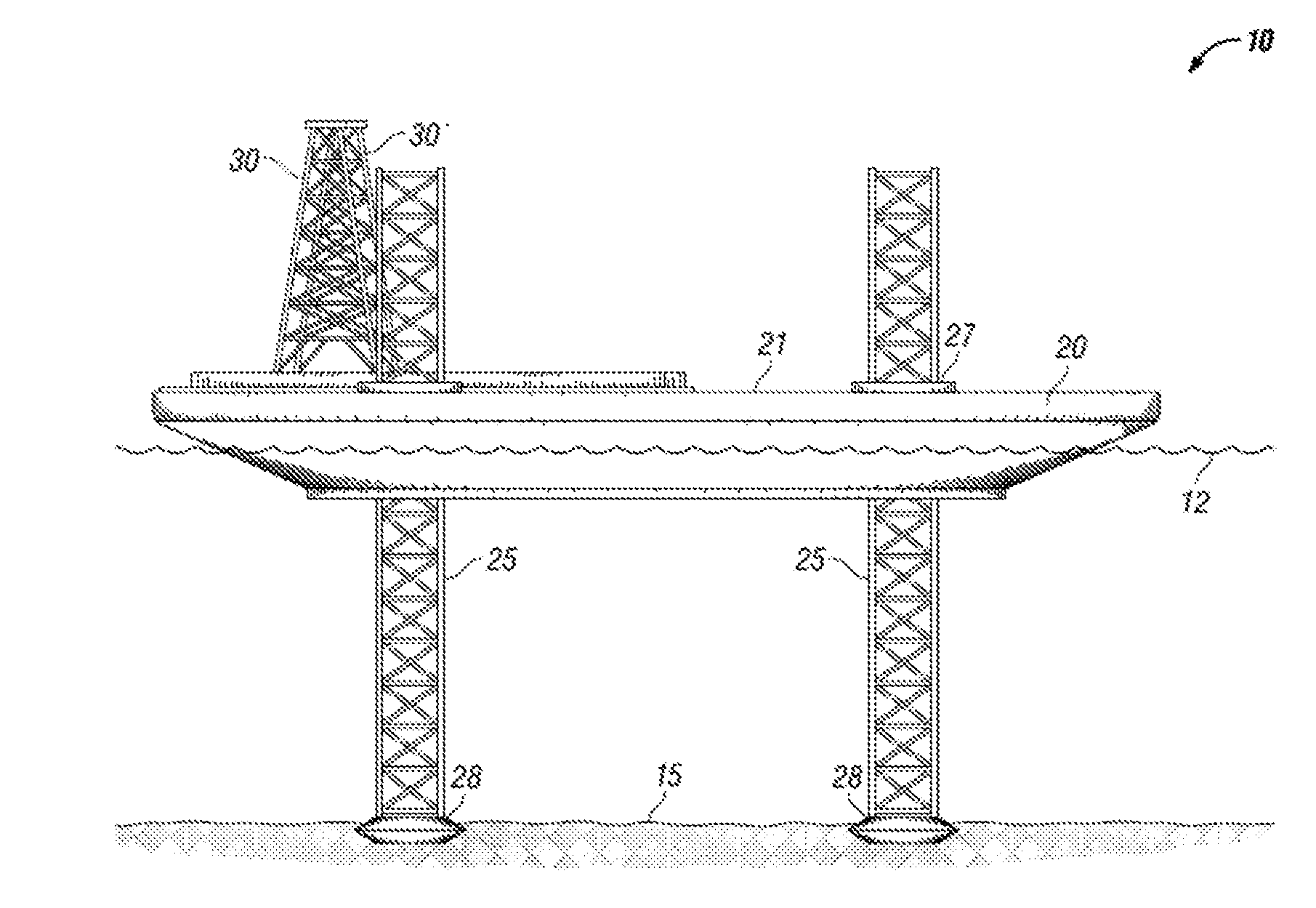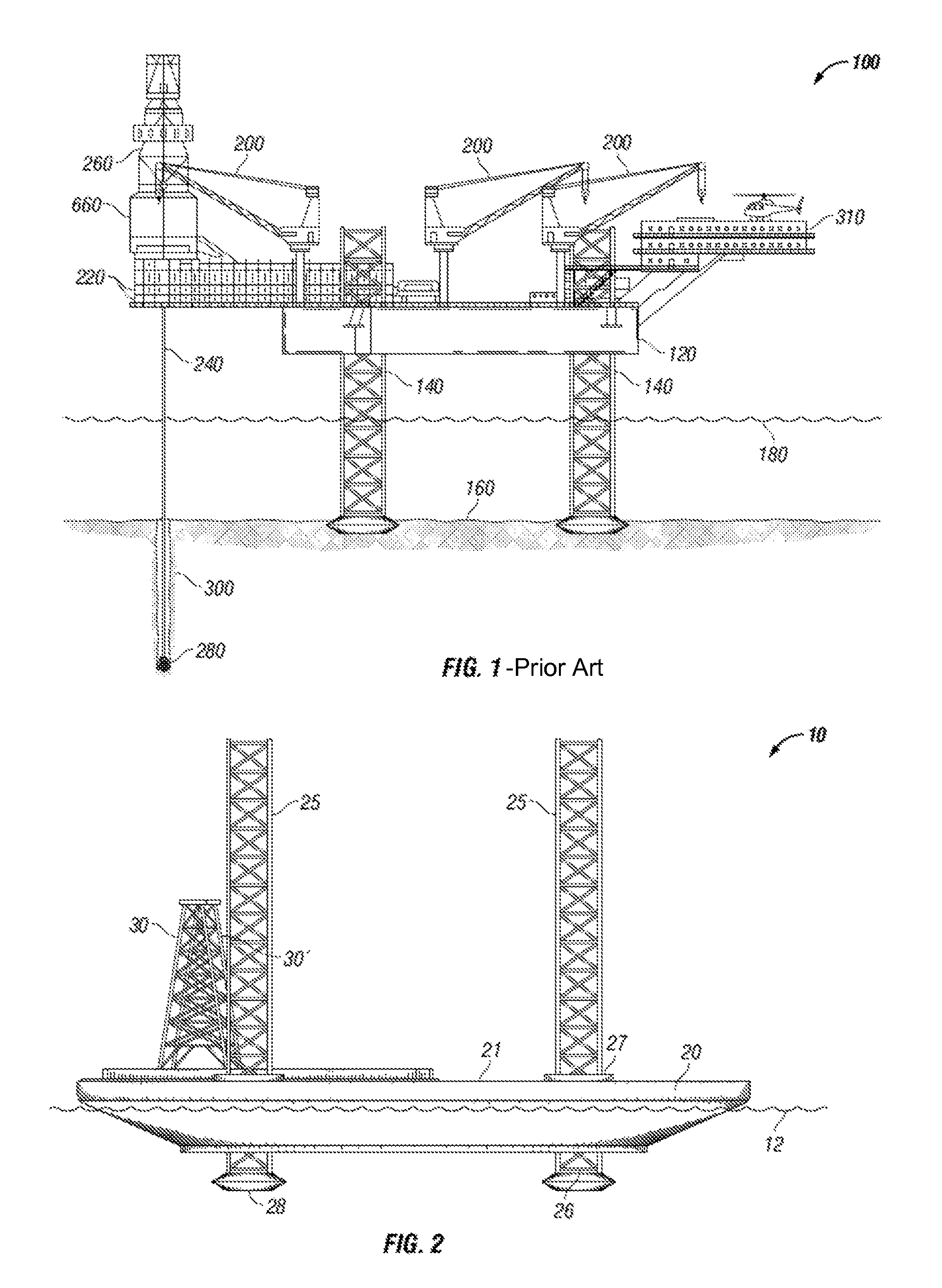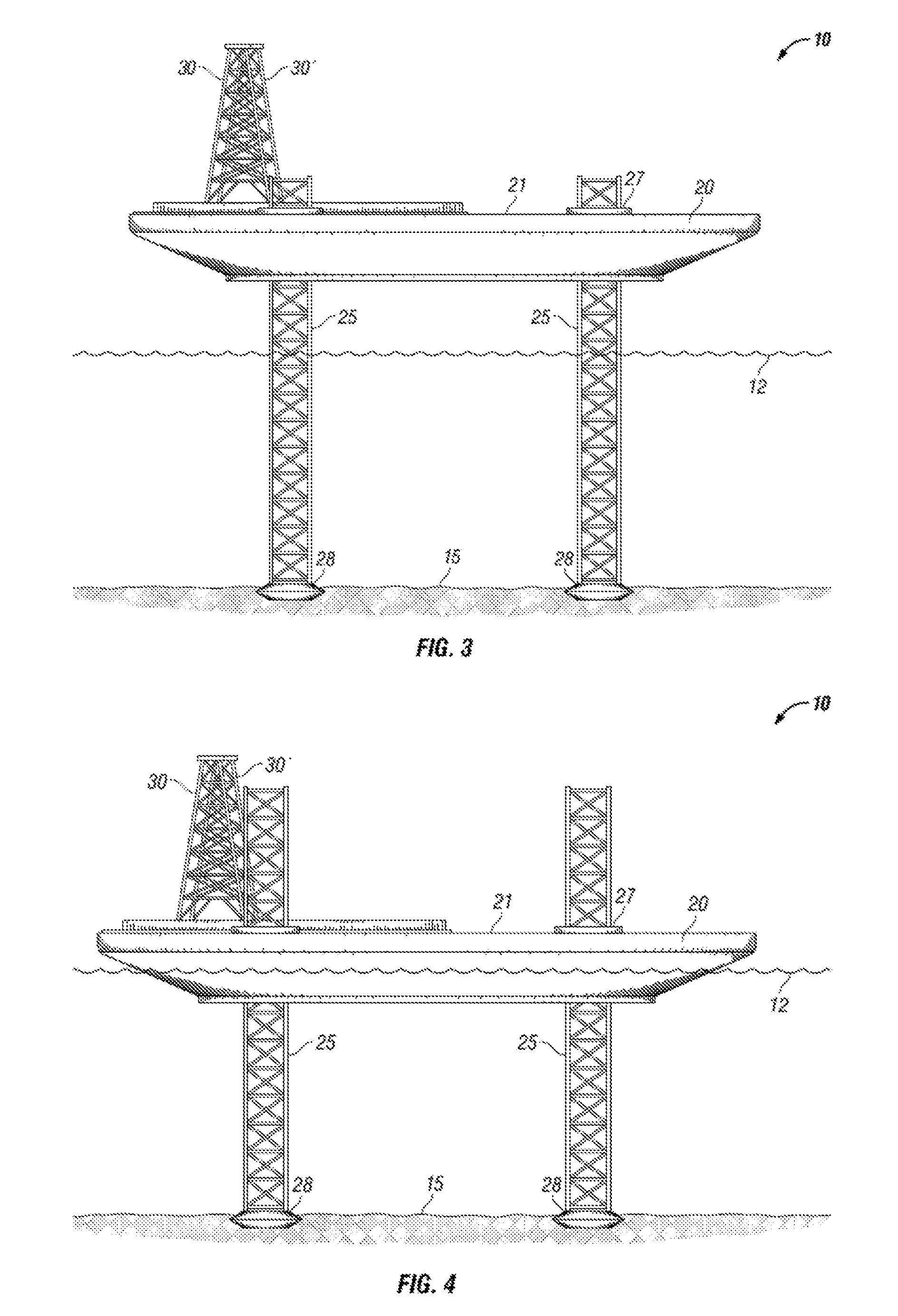Dual-derrick ice-worthy jack-up drilling unit
a drilling unit and dual-derrick technology, applied in floating buildings, ice breakers, artificial islands, etc., can solve the problems of large, undiscovered resources remain to be found, new large reserves are being found in more challenging and difficult-to-reach areas, and the drilling potential is larg
- Summary
- Abstract
- Description
- Claims
- Application Information
AI Technical Summary
Benefits of technology
Problems solved by technology
Method used
Image
Examples
example 1
[0048]FIG. 1 is a prior art drilling rig 100 which shows a jack-up rig in more detail, including the elevated hull 120 lifted above waterline 180 via legs 140, heliport 310, cranes 200, cantilevered drill portion 220 having derrick 260 with drill floor 660, and drill string 240 descending into open hole 300 past the sea floor 160 and ending in drill bit 280. Spud cans are also shown, but not labeled. Considerable detail is omitted from this figure, including various safety and control systems, piping, crew quarters, marine equipment, mission equipment, and elevating equipment, but it can be seen that a jack-up rig has limited space and complex structure. Hereinafter, the jack-up rig figures are simplified somewhat for clarity of viewing.
[0049]As shown in FIG. 2, an ice worthy jack-up rig is generally indicated by the arrow 10. In FIG. 2, jack-up rig 10 is shown with its hull 20 floating in the sea and legs 25 in a lifted arrangement where much of the length of the legs 25 extend abo...
PUM
 Login to View More
Login to View More Abstract
Description
Claims
Application Information
 Login to View More
Login to View More - R&D
- Intellectual Property
- Life Sciences
- Materials
- Tech Scout
- Unparalleled Data Quality
- Higher Quality Content
- 60% Fewer Hallucinations
Browse by: Latest US Patents, China's latest patents, Technical Efficacy Thesaurus, Application Domain, Technology Topic, Popular Technical Reports.
© 2025 PatSnap. All rights reserved.Legal|Privacy policy|Modern Slavery Act Transparency Statement|Sitemap|About US| Contact US: help@patsnap.com



